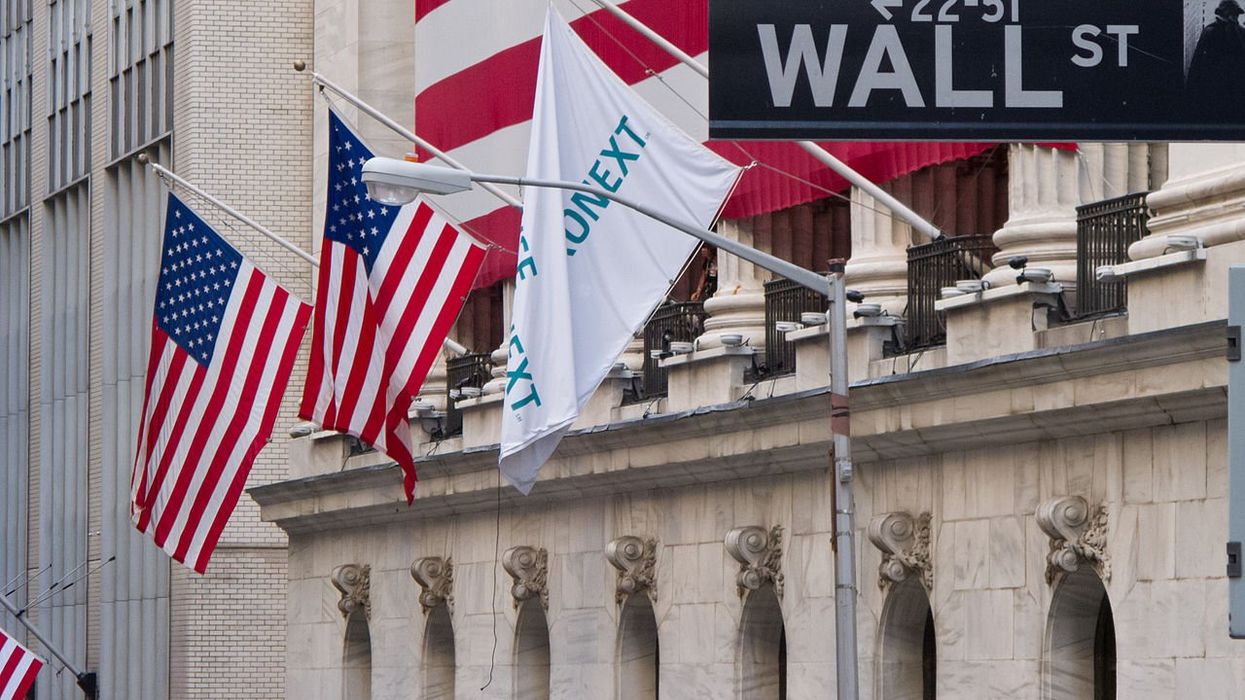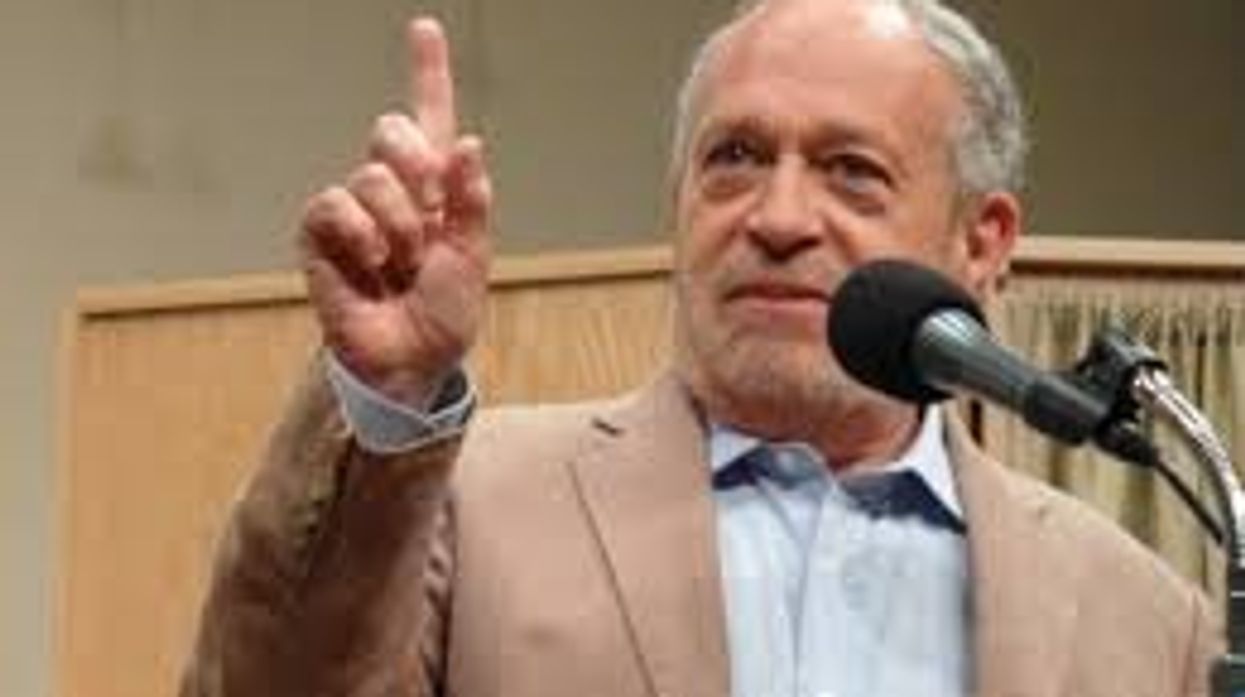
New York City's financial district in 2012 (Wikimedia Commons)
December 18, 2024
ALTERNET
During his 2024 presidential campaign, Donald Trump repeatedly blamed President Joe Biden and Vice President Kamala Harris for inflation in the United States. His messaging worked: Trump pulled off a narrow victory, defeating Harris in both the electoral and popular votes.
Trump didn't win by a "landslide," as "War Room" host Steve Bannon, Rep. Rick Scott (R-Florida) and other far-right Trump supporters have been claiming. The president-elect, according to the Cook Political Report, won the popular vote by roughly 1.5 percent. But he successfully used voters' anxiety over inflation to his advantage.
Nonetheless, the U.S. has had low unemployment rates under Biden's presidency. According to the U.S. Bureau of Labor Statistics (BLS), unemployment was only 4.2 percent in November.
READ MORE:'Not going to cooperate': Border state sheriffs vow to defy Trump’s mass deportations plan
In an article published on December 18, the New York Times' Ben Casselman emphasizes that Trump is inheriting a "stable" economy from Biden/Harris — and addresses fears that the stability coud disappear.
"After five years of uncertainty and turmoil," Casselman explains, "the U.S. economy is ending 2024 in arguably its most stable condition since the start of the coronavirus pandemic. Inflation has cooled. Unemployment is low. The Federal Reserve is cutting interest rates. The recession that many forecasters once warned was inevitable hasn’t materialized."
The Times reporter continues, "Yet the economic outlook for 2025 is as murky as ever, for one major reason: President-elect Donald J. Trump. On the campaign trail and in the weeks since his election, Mr. Trump has proposed sweeping policy changes that could have profound — and complicated — implications for the economy."
Possible Causes for concern, according to Casselman, include new tariffs, mass deportations, and regulation changes that could "make the financial system more prone to crises over the long run."
Michael Gapen, chief U.S. economist for Morgan Stanley, told the Times, "It is a very uncertain outlook, and most of that uncertainty comes from potential changes in policy…. There's a wide range of potential outcomes, and a base-line outlook isn't quite as useful as it is in normal times."
Economist Michael Strain of the American Enterprise Institute warns that changes in "trade and immigration policy could be extremely disruptive to the economy" and lead to slow growth combined with high inflation.
Strain told the Times, "In this scenario, the price of imported goods, the price of groceries, the price of restaurant meals, the price of homes all shoot up dramatically."
Read Ben Casselman's full New York Times article at this link (subscription required).
ALTERNET
During his 2024 presidential campaign, Donald Trump repeatedly blamed President Joe Biden and Vice President Kamala Harris for inflation in the United States. His messaging worked: Trump pulled off a narrow victory, defeating Harris in both the electoral and popular votes.
Trump didn't win by a "landslide," as "War Room" host Steve Bannon, Rep. Rick Scott (R-Florida) and other far-right Trump supporters have been claiming. The president-elect, according to the Cook Political Report, won the popular vote by roughly 1.5 percent. But he successfully used voters' anxiety over inflation to his advantage.
Nonetheless, the U.S. has had low unemployment rates under Biden's presidency. According to the U.S. Bureau of Labor Statistics (BLS), unemployment was only 4.2 percent in November.
READ MORE:'Not going to cooperate': Border state sheriffs vow to defy Trump’s mass deportations plan
In an article published on December 18, the New York Times' Ben Casselman emphasizes that Trump is inheriting a "stable" economy from Biden/Harris — and addresses fears that the stability coud disappear.
"After five years of uncertainty and turmoil," Casselman explains, "the U.S. economy is ending 2024 in arguably its most stable condition since the start of the coronavirus pandemic. Inflation has cooled. Unemployment is low. The Federal Reserve is cutting interest rates. The recession that many forecasters once warned was inevitable hasn’t materialized."
The Times reporter continues, "Yet the economic outlook for 2025 is as murky as ever, for one major reason: President-elect Donald J. Trump. On the campaign trail and in the weeks since his election, Mr. Trump has proposed sweeping policy changes that could have profound — and complicated — implications for the economy."
Possible Causes for concern, according to Casselman, include new tariffs, mass deportations, and regulation changes that could "make the financial system more prone to crises over the long run."
Michael Gapen, chief U.S. economist for Morgan Stanley, told the Times, "It is a very uncertain outlook, and most of that uncertainty comes from potential changes in policy…. There's a wide range of potential outcomes, and a base-line outlook isn't quite as useful as it is in normal times."
Economist Michael Strain of the American Enterprise Institute warns that changes in "trade and immigration policy could be extremely disruptive to the economy" and lead to slow growth combined with high inflation.
Strain told the Times, "In this scenario, the price of imported goods, the price of groceries, the price of restaurant meals, the price of homes all shoot up dramatically."
Read Ben Casselman's full New York Times article at this link (subscription required).
Robert Reich: The last tariff increase 'ended up worsening the Great Depression'

Image via Albaum/Creative Commons.

Image via Albaum/Creative Commons.
November 27, 2024
ALTERNET
Former Labor Secretary Robert Reich on Tuesday explained the impact Donald Trump's new tariff plan could have on American families, predicting the countries that fall under the president-elect's tariff enforcements will likely retaliate.
Speaking with Reich on the latest episode of MSNBC's The ReidOut, host Joy Reid noted that some economists say under Trump's tariff plan, "The average American household is going to spend $2600 a year."
However, Reich corrected the MSNBC host, saying: "That $2600 family estimate was made in August, before we knew how large the tariffs are going to be." The ex-labor secretary added, "I think the actual per family estimated cost is probably closer now to $4000."
Reid then noted that America's largest trading partners include China, Canada, Mexico — all of which fall under the MAGA leader's tariff plan.
"If we slap a massive tariff, Robert, on those countries, what would they do? What might they do in return?" Reid asked.
"Well, they will do exactly what countries did in 1930," the ex-President Bill Clinton administration official replied. "1930 was the last time we had a big, across-the-board tariff increase, and that was from Herbert Hoover. Remember President Herbert Hoover?" he asked.
Reich continued, "That resulted in retaliatory tariffs — other countries retaliating against us for putting tariffs on their goods. And those retaliations — those tariff wars — ended up worsening the Great Depression."
Watch the video below or at this link.
Former Labor Secretary Robert Reich on Tuesday explained the impact Donald Trump's new tariff plan could have on American families, predicting the countries that fall under the president-elect's tariff enforcements will likely retaliate.
Speaking with Reich on the latest episode of MSNBC's The ReidOut, host Joy Reid noted that some economists say under Trump's tariff plan, "The average American household is going to spend $2600 a year."
However, Reich corrected the MSNBC host, saying: "That $2600 family estimate was made in August, before we knew how large the tariffs are going to be." The ex-labor secretary added, "I think the actual per family estimated cost is probably closer now to $4000."
Reid then noted that America's largest trading partners include China, Canada, Mexico — all of which fall under the MAGA leader's tariff plan.
"If we slap a massive tariff, Robert, on those countries, what would they do? What might they do in return?" Reid asked.
"Well, they will do exactly what countries did in 1930," the ex-President Bill Clinton administration official replied. "1930 was the last time we had a big, across-the-board tariff increase, and that was from Herbert Hoover. Remember President Herbert Hoover?" he asked.
Reich continued, "That resulted in retaliatory tariffs — other countries retaliating against us for putting tariffs on their goods. And those retaliations — those tariff wars — ended up worsening the Great Depression."
Watch the video below or at this link.
No comments:
Post a Comment